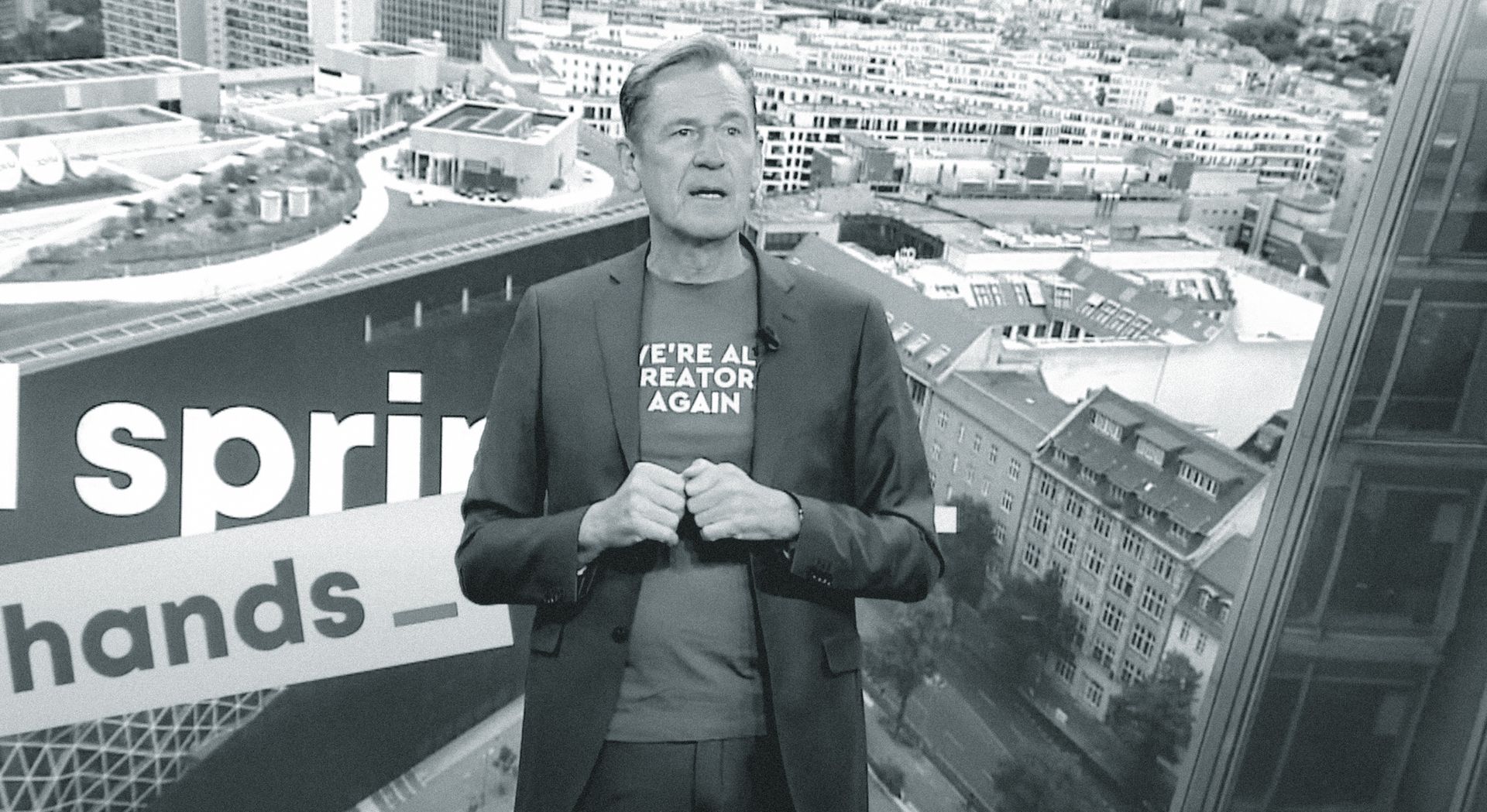
Axel Springer chief Mathias Döpfner holds a global all-hands meeting. (Screen shot)
On Wednesday, from a stage at Axel Springer’s headquarters in Berlin, Mathias Döpfner, the company’s chief executive, addressed employees around the world in a global all-hands meeting. Axel Springer—the German publishing group that owns POLITICO, Business Insider, and BILD—had streamed the event company-wide. Wearing a tailored blue suit over a T-shirt from the Cannes Lions advertising festival that read “We’re All Creators Again,” Döpfner delivered an impassioned and urgent message: artificial intelligence is no longer an optional tool to use. It’s here, and the company’s future depends on everyone embracing the rapidly advancing technology.
“I tell you, what is happening at the moment with regard to technology is the biggest change in modern civilization,” Döpfner said. “The first wave of internet is nothing against these developments.”
The 50-minute meeting—based on unlisted video uploaded by the company to YouTube and reviewed by Status—was the company’s first since its separation from the classifieds division last year in a deal with private equity firm KKR. Döpfner framed the move as a strategic reset. “It’s really like a new beginning,” he said. “A new era. The company is way smaller, but it’s way more focused and debt free and in the spirit of a true new beginning and new take off.”
The meeting covered a wide array of topics…
The remainder of this newsletter is for paid subscribers only.
Scoop-driven reporting and sharp-edged analysis. See why thousands of industry professionals rely on Status.
Already a subscriber? Sign in.
A subscription gets you full access to our nightly newsletter, which includes:
✅ Essential reporting on and analysis of the Fourth Estate, Silicon Valley, Hollywood, the Information Wars, and more.
✅ Hand-curated links to the most consequential stories moving the needle in the key corridors of the industry.
✅ Unlimited access to our online archive where you can read previous editions of the newsletter.

